How Victorian farmers are fighting back from tragedy
They’ve endured drought, bushfires and the impact of coronavirus but rain has brought a smile to the faces of our farmers, who continue to battle on and further the Victorian economy.
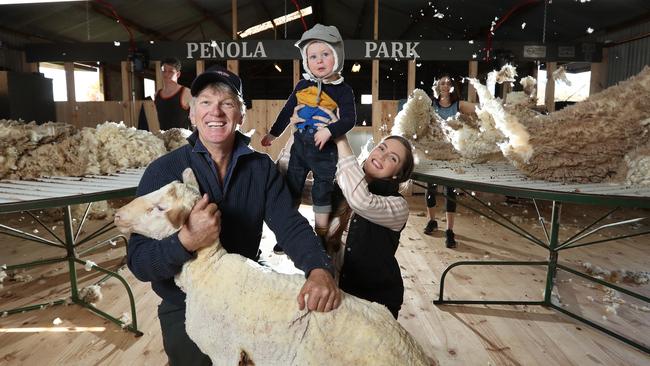
It’s shearing time on the Holt’s Wedderburn farm and little is different to shearing seasons past.
In fact, not much has changed on the broadacre sheep and crop property since coronavirus hit.
Thanks to soaking rain, the fat lambs are getting fatter and the grain is growing well.
After a period of drought, Alex and Tony Holt have full dams and are looking forward to a bumper crop this year, as well as high prices for their “fatties” and mutton.
The sheep “have no idea there’s a pandemic”, so it’s just business as usual on the farm, Mrs Holt, 51, said.
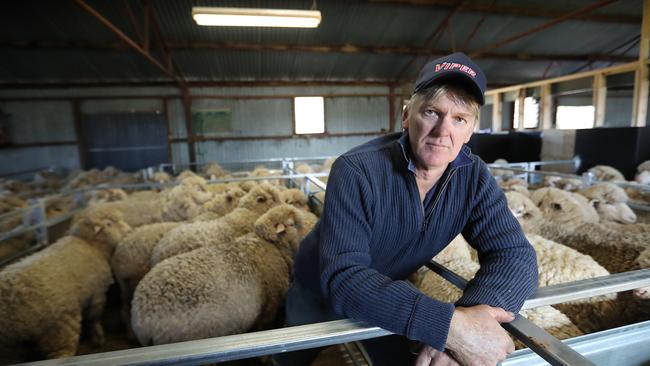
A team of shearers was working flat out to rid more than 2000 merino sheep and fat lambs of their fleece, and she was busy in the kitchen, preparing curried snags and potato bake to keep the hardworking men nourished.
Farmers were great ones for complaining, but, this winter, there was little to whinge about, Mr Holt, 56, laughed.
“This year’s actually been sensational for us,” he said. “We’ve just been steaming along ... doing what we would normally do.”
Isolation was a familiar friend to farmers, so most hadn’t been tearing their hair out about the COVID-19 lockdown, he said.
Social distancing processes had been put in place for fertiliser, chemicals and other farm supplies to be dropped off, but that was probably the biggest change, Mr Holt said.
me.
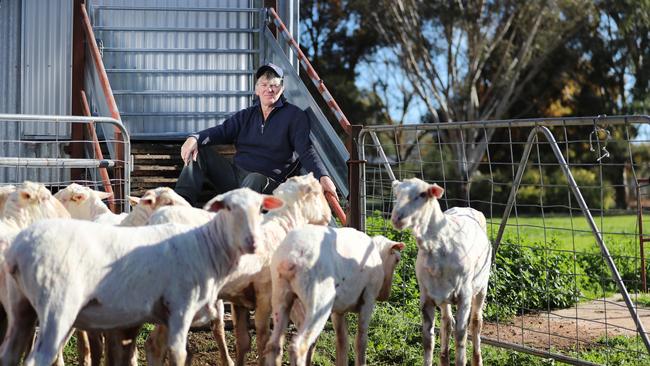
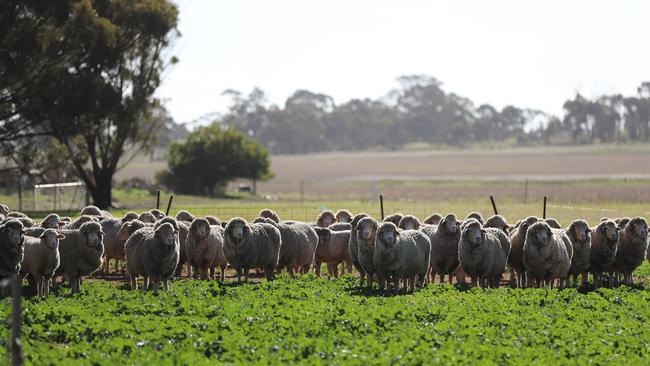
If there was any negative impact of COVID-19 on his sprawling farm - 75 kilometres northwest of Bendigo — it was the plummeting price of wool, as a result of Australia’s dependence on Chinese processing plants and markets, he said.
That financial hit was yet to co
Victorian Farmers Federation (VFF) chief David Jochinke said following drought, fires and flooding rains in some parts of Victoria last year and earlier this year, the winter of 2020 was shaping up as one of great content for farmers.
“As a general synopsis, everyone’s in a lot better shape ... than what we were last year. There’s a lot more positivity generally in almost every segment of agriculture.
“There are real positives in the fact the Aussie dollar is sitting where it is and interest rates are extremely low, so farmers have capacity to do things.
![Shearers Aaron Van Elk [left] and Ben Feltman in action. Picture: Alex Coppel](https://content.api.news/v3/images/bin/c6a02cce555dc8094429c3cec4940fb2?width=650)
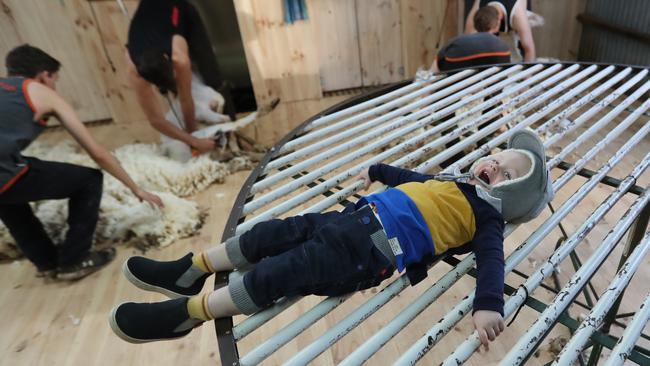
“And if it keeps raining and the forecasts hold up, it’s looking very promising,” he said.
Continued, good rain would boost catchment levels, which in turn would drive the price of water down for farmers, Mr Jochinke said.
“It’s been a long time since we’ve had positivity both in market and the seasons together,” he said.
In East Gippsland, fishermen, vegetable, honey other primary producers were starting to get back on track, after suffering terribly in the fires and losing vital restaurant and cafe markets in the coronavirus lockdown, regional marketing spokeswoman, Hayley Hardy, said.
“Growers of baby spinach, lettuce, broccoli, kale and other greens and even fishermen are looking forward to restaurants reopening and restrictions easing further,” she said.
HARVEST ‘BUSINESS AS USUAL’
Victoria went into lockdown, the walnut harvest geared up in Wangaratta’s King Valley.
“It was business as usual for us,” said farmer Carol Kunert.
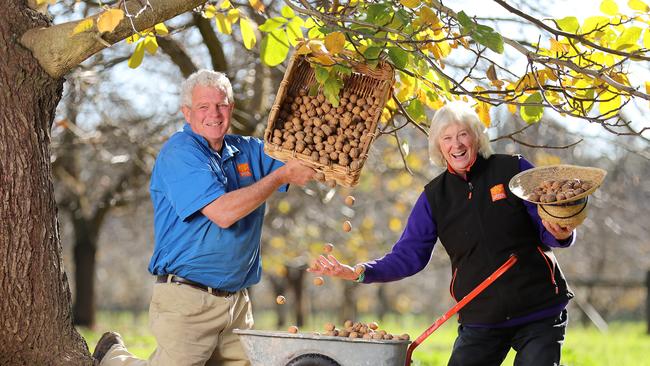
“We are pretty isolated where we are and had our seasonal workers ready to go, so we just got on with the harvest.”
About 30 tonnes of walnuts were harvested from 4000 trees in Myrrhee — although half a tonne was lost to hungry cockatoos — which this year came in double the number of past seasons.
Last year’s drought reduced the size of the haul, and of individual walnuts, but the taste and quality of the nuts are top-notch, Ms Kunert said.
And the COVID-19 lockdown actually resulted in online sales of King Valley Walnuts skyrocket, she said.
“So things have been pretty good for us here.”

